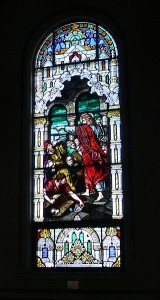“We are certainly at the very end of time. We are seeing a converging of events that are unprecedented at this time. It all points to Jesus Christ returning in the next 5 to 10 years. Don’t you agree pastor?” The question came to me from an excited reader. The person sees Economic crisis added to earthquakes and other terrible events and the person is very sure this is the end.
And my answer, “It could be…It kind of looks like it to me…but I don’t know.” I don’t want to be glib about it. But after years of living through “signs of the end” like economic downturns including gas lines and misery indexes and Tsunamis and wars and crime and Y2K and all of these things, I begin to realize that perhaps gauging the end by crisis is not necessarily the right thing to do.
Is It The Last Days?
I guess, I don’t have a problem with anyone’s prediction that we are close to the end. But let us recognize that we don’t really know and could be wrong. I mean the Bible writer says that the writer was in the “last days.” (Hebrews 1:2)
So please come say it with me “I could be wrong.” That is not to say that I am wrong. Neither is it to say that you are right. But there is something truly liberating about realizing that one can be wrong. I guess if I am consistent then I could be wrong about the fact that I could be wrong, but we ain’t gonna think about that one right now…
Difficult To Deal With “Can’t Be Wrong” Folks
At any rate, it is very difficult to have discussions with people who can’t be wrong. Often people who “can’t be wrong” are always attacking straw men. They are the hard core ideologues. Their ideology may be conservative, liberal, or even the lack thereof, but they know they are right and you are wrong.
Interestingly, it seems that a lot of discussions with Adventists go down that road. I don’t care if you are liberal, conservative, or even former. Many Adventists have this “I can’t be wrong” idea. I don’t know if it is from the “having the truth” or if it is from the “Sister White said.” But whatever it is, Adventists too often have a mindset where they “can’t be wrong.”
The People Who Are Sure
What is funny is when this mindset even carries over into things that they couldn’t know. I know someone who knows for certain that an herb will always heal you. Notwithstanding experience has proven that idea false, it is still something that one will fight you over. Then there are the ones who know for certain that various people are Jesuit infiltrators into the church. They can give you the names of infiltrators. I always wondered how can they so easily identify them if these infiltrators are so good at infiltrating?
Let us not forget the ones who are sure that the last great event in the world is a certain harbinger of the end time. A lot of them said that Y2K was going to be the end. Life went on past that non-event. I remember 1996 was supposed to be the end of the age. Using Ussher’s chronology 1996 was supposedly the 6 thousandth year of earth’s history. And time went on. All the way to the last “great recession” that was supposed to be the very end. What’s funny is some of the same folks predicted all of those events. And now they are still making predictions. Can we all just say it together….”I may believe it…but I Don’t Know.”
This I can’t be wrong mentality seeps into more discussions. In my interdenominational work, I have the opportunity to interact with people of many denominational groups. Some conversations are difficult to have. Whenever one has a conversation with one who can’t be wrong, then the conversation becomes more and more cumbersome.
Hard Discussions With Know-It-All’s
I remember doing a presentation once on vegetarianism. The presentation was not condemning but informing. I presented the speech to a secular audience and had a very good but respectful disagreement and agreement. Some said, I made some good points but was missing some information that would be helpful. Some made some valid critiques of my information. The point was sharing of information.
While preparing for the presentation, an Adventist got wind of it and decided to let me have it. She told me I was a legalist teaching salvation by works and promoting unhealthy living (she alleged that I didn’t consider the need for protein). Please note that the presentation had nothing at all to do with salvation (which would probably cause some others to be mad at it), the Bible, or even how to eat. But one thing I learned early that some Adventists are hard to have discussions with about anything.
I know it ain’t just us. But I must admit that there seems to be a disproportionate number of Adventists who “know it all and can’t be wrong.”
Conversation Is Difficult With Those Who Can’t Be Wrong
I can remember at Vanderbilt as well having interesting discussions about theology where we shared our own positions recognizing that we can learn from each other. But conversation is difficult with people who can’t be wrong.
Some attack those with whom they disagree with a certainty from those who cannot be wrong. Perhaps we Adventists need to add a spiritual discipline to our Bible Study, Prayer, Fasting, Meditation. Let’s add a discipline of regularly saying “I could be wrong.” Let us say together “God knows….I think I am right…But I don’t know.” Ahh…wasn’t that liberating?




